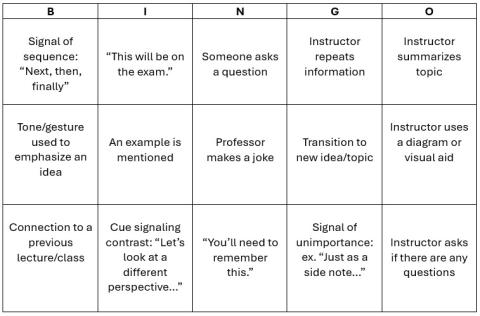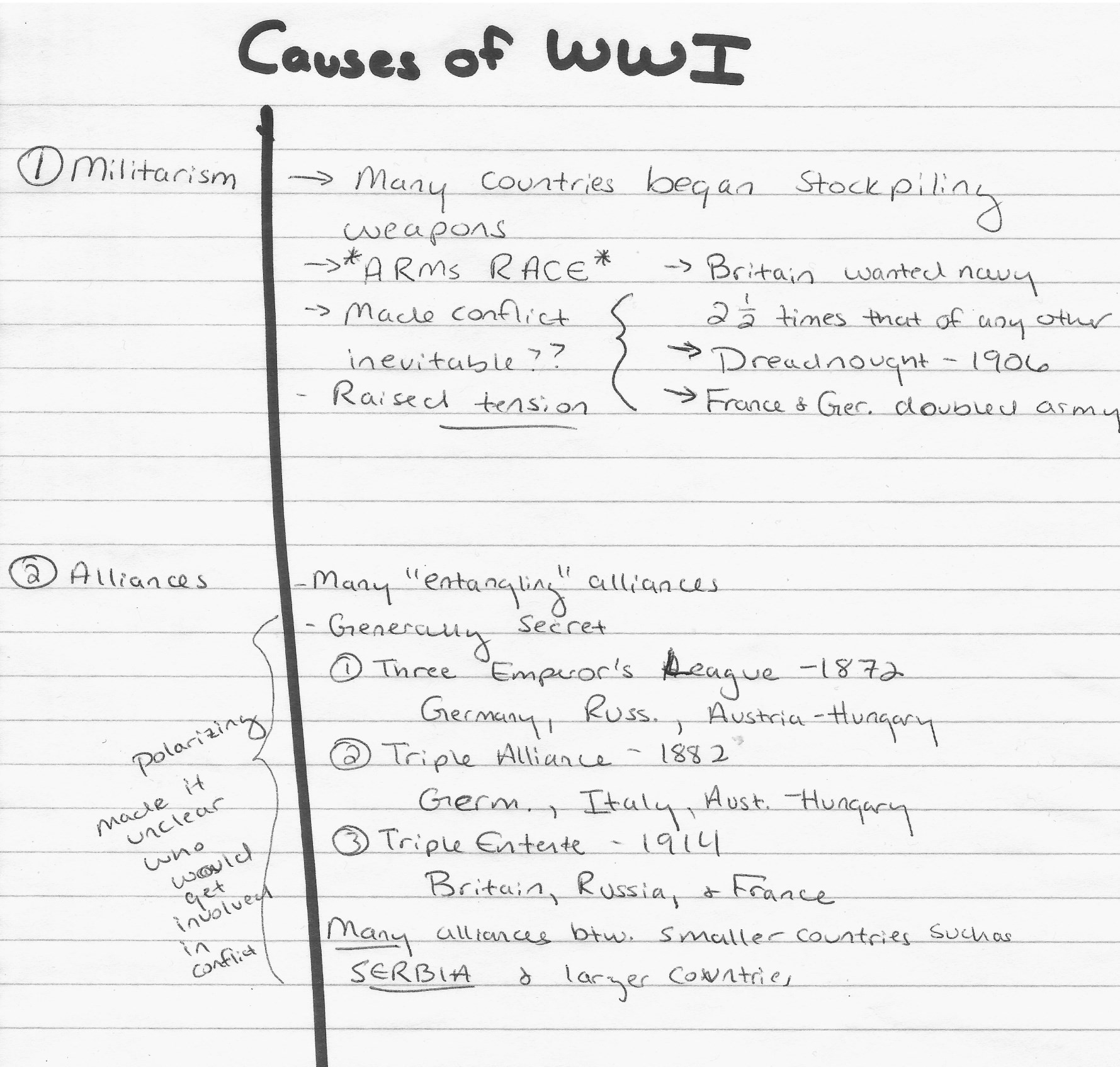- The Challenge of Lectures
- Understanding the Lecture Experience
- What to Do Before the Lecture
- What to Do During the Lecture
- What to Do After the Lecture
- Video: Effective Lecture Notes
The Challenge of Lectures
In lecture, professors sift through reams of work on a particular topic and present you with the most significant and interesting aspects of it. In any given lecture, a professor may draw on ideas he or she has gleaned from many different scholarly works and years of experience in the field. In short, lectures are a primary means by which your professors will communicate information to you, information that they will expect you to know and apply during seminars and on exams.
Clearly, learning how to listen actively to and take notes during a lecture will be crucial to your success as a student. However, many students have trouble getting the most out of lectures, especially at first. There seem to be two main problems that can cause this difficulty:
- Information goes by once, usually very quickly. If you miss something (say, you are writing instead of listening), it’s gone.
- It’s difficult to separate what is important, the main points that you need to note, from secondary points.
Understanding the Lecture Experience
One of the best ways to meet the challenge of understanding and taking good notes during lectures is to think of the lecture as more than a one-shot, fifty-minute experience. Instead, think of it as a three-part experience, and realize that you will need to participate actively in each part in order to get the most out of lectures.
- Before. Prepare for lectures before they begin and try to anticipate what they will cover.
- During: Listen actively and find a notetaking system that works for you.
- After: Review and respond to your notes.
What to Do Before the Lecture
- Read the syllabus to see what the unit is about and what the title of the lecture is. Think about where the lecture fits into the course.
- Consider what you already know about the topic and try to anticipate what might be covered.
- Review your notes from previous lectures to further re-establish the context of the course in your own mind.
- Do assigned readings. Anticipate how they might relate to the lecture ahead.
- If they are posted ahead of time, download and copy any outlines or list of key terms for the lecture ahead. If PowerPoint slides are posted, print them in handout form so you can make additional notes, identify key information and indicate connections.
- Make a list of questions you would like to have answered by the lecture.
What to Do During the Lecture
Listen Actively
It is not necessary to record the lecturer’s every word or idea. Not only is this physically impossible, but excessive writing can become a barrier to listening. What good is writing down things that you don’t understand, anyway?
- Listen for important points.
- Listen for relationships between ideas in texts, class discussions, and the lectures.
- Listen for cue words; they help you cluster and prioritize information.
Cue Words
| Types of Cue Words | Examples |
|---|---|
| Words that Signal Emphasis or Importance | Essential Crucial Significantly |
| Words that Signal the Order or Scope of a Topic | First, second, third Initially, Finally For instance, For Example |
| Words that Indicate the Lecture is Moving in a New Direction | However Nonetheless Whereas In contrast |
| Words that Signal that parts of the lecture are NOT central and DO NOT need to be written down | Incidentally As a digression By the way |
Lecture Bingo!
Test out your detective listening skills and ability to recognize lecture cues! Each square features common cues that instructors use to signal importance, organization, direction and unimportance. As you listen, mark off the cues you hear to help you stay focused, anticipate test-worthy material and build your notetaking confidence!

Know What to Write Down
- New or unfamiliar facts and ideas.
- Things that come in lists: if the lecturer has created a list to categorize facts, reasons, themes, etc., it’s a good indication that the information is important.
- The lecturer’s reasons for questioning or favouring a particular approach or theory.
- Points which the lecturer pauses over or repeats: people lecture with certain goals in mind, and usually when they convey a point which is crucial to their thesis they repeat it.
- Don’t write down what is on the PowerPoint slide if you have access to it later. There is no need to repeat information.
Develop a Notetaking System
- Develop your own short-hand of abbreviations and symbols.
- Write in point form.
- Leave lots of white space to fill in later when you complete your comments on the lecture or fill in gaps.
- For laptop notetaking, make sure to save often.
- For audio recording: ask for the instructor’s permission, sit near the front of the class, and take notes as well if possible. There are many new tools, such as smart pens, that can help you with recording and notetaking during lectures.
The Cornell Method
The Cornell Method is one of the most common and popular notetaking systems. In this method of note-taking, you begin by drawing a line down the length of your paper about one-third of the way through the page. On the left side of the page, write only key terms or ideas. Leave most of the space blank. On the right side of the page, take notes on the lecture in point form. Later, the space on the left side can be used to add in or expand on information, highlight key points, or raise key questions. This picture shows how you can organize your notes using the Cornell Method.

What to Do After the Lecture
Just as the lecture experience begins before the professor begins speaking, it continues well after he or she is done. Many students leave the lecture hall and file their notes away until exams. Unfortunately, research shows that in doing so, they lose a significant amount of what they just learned. Instead, review your notes soon after the lecture ends.
- Read through your notes as soon as you can after the lecture ends. Highlight or underline main points. Put stars next to key information. Try to fill in any gaps in your notes.
- Respond to and reflect on your notes in the margins of the paper. You can use one margin to make a list of terms that corresponds to the information in the body of your notes. You can use the other side of the margin to write a short summary of a key idea or make a connection between the point made in lecture and ideas from readings or seminars.
- Discuss your notes with a friend or study group. This can help you to process information, fill in gaps in your notes, and deepen your understanding of the main points.
- Make flashcards or lists of key terms. You don’t need to wait for the end of the term to start preparing for exams. Take a few minutes to put key vocabulary terms or concepts on index cards or a list of terms with a brief definition.
- Keep your notes organized so you can find them. Indicate course code, lecture title, and date of the lecture. File your notes together by course and organize them chronologically for easy access; this strategy works for handwritten or typed notes.
Effective Lecture Notes

